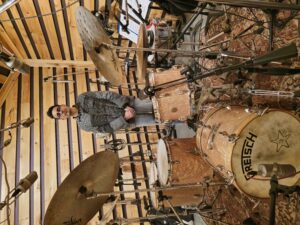How To Learn Piano Scales Like a Prodigy – Score Music Tech
How to Play Scales on the Piano?
There are many different techniques in piano work. The most important of these techniques is scale work. Scale exercises are very important both in terms of musicality and in terms of the development of fingers. Technical information such as scale studies on the piano provides a better understanding of theoretical information.
What is Scale Study on the Piano?
Playing scales on the piano means playing the notes of a scale in succession. The notes of a scale are played in order, from easy to difficult, until smooth sounds are produced. When scales and chords are studied continuously, movement, flexibility and agility are provided in the hand muscles and wrists. With scale work, you feel that the fingers touch the keys more sensitively and begin to be controlled. Thus, the sounds coming out of the piano will be of higher quality and at a better level.
A piano student who constantly works on scales, when they encounter a passage consisting of arpeggios of a scale in any piece they play, will deal with this problem more easily than a student who has never studied scales.
Things to Consider in Piano Scale Studies
Scale studies enable learning more quickly and adapting to the material faster. Having the same finger pattern for each step helps not to waste your time and effort. If we list the features to be considered in scale studies;
- The first thing to pay attention to while practicing scales on the piano is not to start with difficult scales. It is necessary to follow a path from easy scales to difficult scales.
- The major scale is recommended as the most suitable scale to start with.
- It is necessary to work each scale separately with both hands.
- After learning the finger sequence, it is necessary to work with both hands.
- During the scale studies on the piano, it is necessary to pay attention to the fact that the sound is connected at the same level, that it plays legato, that it is fluent and even with a deep sound.
- Piano scale studies are studies that you can get to a good point by learning and adopting the scale structure and playing and exercising at various stages. Being able to play given notes from various scales and acquiring this skill helps you easily overcome a scale-like passage no matter the piece you are playing.
In piano training, mechanical repetitions are generally done to stretch the hands and improve physiological characteristics. Strengthening the muscles and improving endurance in the process of playing the piano, improving flexibility, increasing joint abilities, and gaining agility in the hands are all gained through scale exercises.
With scale exercises on the piano, you can discipline the fingers, stretch them, make them durable and provide control. In addition, with scale studies, skills such as sound equality in piano technique, sound quality, and a variety of tone colors are gained.
Learn All the Subtleties of the Piano
You should learn everything you can learn with piano scale studies and piano in a professional and quality course. If you want to step into the world of music and become a successful pianist, you can try out some professionally prepared piano courses. If you want to enjoy the advantages of taking piano education from a quality course and enjoy continuing your music journey successfully, you should take piano lessons from piano instructors who are experts in their field.
In order to do piano scale studies successfully, take firm steps to realize your dream by contacting the courses that provide a quality education that you can easily reach.








